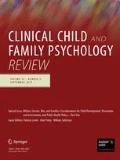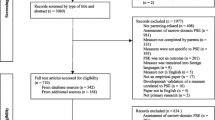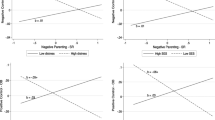Although researchers using parental self-report data have questioned its validity (Holden, 2001) and called for more work in this area (Krevans & Gibbs, 1996; Locke & Prinz, 2002), methodological concerns regarding self-report about parenting practices have not been addressed adequately. The susceptibility of parental report to systematic distortions suggests a need for research on ways to improve self-report. This paper attempts to synthesize research findings from other fields (e.g., survey methodology) about ways to improve the validity of self-report, and to discuss the implications for self-report of parenting behaviors. Methods for improving self-report are presented for each of the 5 major tasks in responding to a question: (1) understanding the question, (2) recalling relevant behavior, (3) inference and estimation, (4) mapping the answer onto the response format, and (5) “editing” the answer for reasons of social desirability. Self-administered interviewing, audio-computer-assisted interviewing, pretesting, conversational interviewing, and the decompositional item may be among the best candidates for use in parental self-report. Recommendations are offered with respect to strategies that might prove useful in improving parental assessment of parenting, and to research efforts to evaluate the utility and potential costs of these strategies.
Similar content being viewed by others
REFERENCES
Aquilno, W. S. (1994). Interview mode effects in surveys of drug and alcohol use: A field experiment. The Public Opinion Quarterly, 58, 210–240.
Arnold, D. S., O’Leary, S. G., Wolff, L. S., & Acker, M. M. (1993). The Parenting Scale: A measure of dysfunctional parenting in discipline situations. Psychological Assessment, 5, 137–144.
Baker, R. P., Bradburn, N. M., & Johnson, R. (1995). Computer-assisted personal interviewing: An experimental evaluation of data quality and survey costs. Journal of Official Statistics, 11, 415–434.
Baker, T. B., & Brandon, T. H. (1990). Validity of self-reports in basic research. Behavioral Assessment, 12, 33–51.
Beatty, P. (1995). Understanding the standardized/nonstandardized interviewing controversy. Journal of Official Statistics, 11, 147–160.
Belli, R. F., Traugott, M. W., Young, M., & McGonagle, K. A. (1999). Reducing vote overreporting in surveys: Social desirability, memory failure, and source monitoring. Public Opinion Quarterly, 63, 90–108.
Belson, W. A. (1981). The design and understanding of survey questions. Aldershot, UK: Gower.
Bickart, B., & Felcher, M. (1996). Expanding and enhancing the use of verbal protocols in survey research. In N. Schwarz & S. Sudman (Eds.), Answering questions: Methodology for determining the cognitive and communicative processes in survey research (pp. 115–142). San Francisco: Jossey- Bass.
Blair, E. A., & Burton, S. (1987). Cognitive processes used by survey respondents to answer behavioral frequency questions. Journal of Consumer Research, 14, 280–288.
Blair, J., Menon, G., & Bickart, B. (1991). Measurement effects in self vs. proxy responses: An information-processing perspective. In P. B. Biemer, R. B. Groves, L. E. Lyberg, N. A. Mathiowetz, & S. Sudman (Eds.), Measurement errors in surveys (pp. 145–166). New York: Wiley.
Bless, H., Clore, G. L., Schwarz, N., Golisano, V., Rabe, C., & Wolk, M. (1996). Mood and the use of scripts: Does being in a happy mood really lead to mindlessness? Journal of Personality and Social Psychology, 71, 665–679.
Block, J. H. (1965). The child-rearing practices report. Berkeley Institute of Human Development, University of California, Berkeley.
Bradburn, N. M. (1983). Response effects. In P. Rossi, J. Wright, & A. Anderson (Eds.), Handbook of survey research (pp. 289–328). New York: Academic Press.
Brewer, W. F. (1988). Memory for randomly sampled autobiographical events. In U. Neisser & E. Winograd (Eds.), Remembering considered: Ecological and traditional approaches to the study of memory (pp. 21–90). Cambridge, UK: Cambridge University Press.
Burton, S., & Blair, E. (1991). Task conditions, response formulation processes, and response accuracy for behavioral frequency questions in surveys. Public Opinion Quarterly, 55, 50–79.
Cannell, C., Miller, P., & Oksenberg, L. (1981). Research on interviewing techniques. In S. Leinhardt (Ed.), Sociological methodology 1981 (pp. 389–437). San Francisco: Jossey-Bass.
Catania, J. A., Binson, D., Canchola, J., Pollack, L. M., & Hauck, W. (1996). Effects of interviewer gender, interviewer choice, and item wording on responses to questions concerning sexual behavior. Public Opinion Quarterly, 60, 345–375.
Chu, A., Eisenhower, D., Hay, M., Morganstein, D., Neter, J., & Waksberg, J. (1992). Measuring the recall error in self-reported fishing and hunting activities. Journal of Official Statistics, 8, 19–39.
Clayman, M. L., & Wissow, L. S. (2004). Pediatric residents’ response to ambiguous words about child discipline and behavior. Patient Education and Counseling, 55, 16–21.
Conrad, F. G., & Blair, J. (1996). From impressions to data: Increasing the objectivity of cognitive interview. Paper presented at the 1996 Joint Statistical Meetings, Chicago, August 4, 1996. [As cited in Tourangeau, Rips, and Rasinski, 2000.]
Conrad, F. G., & Schober, M. F. (2000). Clarifying question meaning in a household telephone survey. Public Opinion Quarterly, 64, 1–28.
Dekovic, M., Janssens, J. M., & Gerris, J. R. (1991). Factor structure and construct validity of the Block Child Rearing Practices Report. Psychological Assessment, 3, 182–187.
Del Boca, F. K., & Doll, J. A. (2000). Truth or consequences: The validity of self-report data in health services research on addiction. Addiction, 95, 347–360.
DeMaio, T. J., & Rothgeb, J. M. (1996). Cognitive interviewing techniques in the lab and in the field. In N. Schwarz & S. Sudman (Eds.), Answering questions: Methodology for determining cognitive and communicative processes in survey research. San Francisco: Jossey-Bass.
DiFranceisco, W., McAuliffe, T. L., & Sikkema, K. J. (1998). Influences of survey instrument format on the reliability of self-reported high risk sexual behavior. AIDS and Behavior, 2, 329–337.
Fagot, B. L. (1992). Assessment of coercive parent discipline. Behavioral Assessment, 14, 387–406.
Fendrick, M., & Kim, J. (2001). Multiwave analysis of retest artifact in the National Longitudinal Study of Youth drug use. Drug and Alcohol Dependence, 62, 239–253.
Fowler, F. (1992). How unclear terms affect survey data. Public Opinion Quarterly, 56, 218–231.
Fowler, F. J., & Cannel, C. F. (1996). Using behavioral coding to identify cognitive problems with survey questions. In N. Schwarz & S. Sudman (Eds.), Answering Questions: Methodology for determining cognitive and communicative processes in survey research (pp. 15–36). San Francisco: Jossey-Bass.
Goldstein, K. P., Kviz, F. J., & Daum, R. S. (1993). Accuracy of immunization histories provided by adults accompanying preschool children to a pediatric emergency department. JAMA, 270, 2190–2194.
Groves, R. M., & Kahn, R. (1979). Surveys by telephone: A national comparison with personal interviews. New York: Academic Press.
Handlin, A. H. (1994). Responses and order effects in referendum voting: Exploring the influence of contextual bias on public policy. Journal of Business Research, 30, 95–109.
Heberlein, T. A., & Baumgartner, R. (1978). Factors affecting response rates to mailed questionnaires: A quantitative analysis of the published literature. American Sociological Review, 43, 447–462.
Holden, G. W. (2001). Parenthood. In J. Touliatos, B. F. Perlmutter, & M. A. Straus (Eds.), Handbook of family measurement techniques (Vol. 1, pp. 137–149). Thousand Oaks, CA: Sage.
Jabine, T., Straf, M., Tanur, J., & Tourangeau, R. (1984). Cognitive aspects of survey methodology: Building a bridge between disciplines. Washington, DC: National Academy Press.
Jacob, T., Moser, R. P., Windle, M., Loeber, R., & Stouthamer-Loeber, M. (2000). A new measure of parenting practices involving preadolescent- and adolescent-aged children. Behavior Modification, 24, 611–634.
Jenkins, C., & Dillman, D. (1997). Towards a theory of self-administered questionnaire design. In L. Lyberg, P. Biermer, M. Collins, E. DeLeeuw, C. Dippo, N. Schwarz, & D. Trewin (Eds.), Survey measurement and process quality (pp. 165–196). New York: Wiley.
Jo, M. S. (2000). Controlling social-desirability bias via method factors of direct and indirect questioning in structural equation models. Psychology and Marketing, 17, 137–148.
Johnson, T., Houghland, J., & Clayton, R. (1989). Obtaining reports of sensitive behaviors: A comparison of substance use reports from telephone and face-to-face interviews. Social Science Quarterly, 70, 174–183.
Kovar, M. G., & Royston, P. (1990). Comment on Suchman and Jordan. Journal of the American Statistical Association, 85, 246–247.
Krevans, J., & Gibbs, J. C. (1996). Parents’ use of inductive discipline: Relations to children’s empathy and prosocial behavior. Child Development, 67, 3263–3277.
Krosnick, J. A., & Alwin, D. (1987). An evaluation of a cognitive theory of response-order effects in survey measurement. Public Opinion Quarterly, 51, 201–219.
Lessler, J. T., Tourangeau, P., & Salter, W. (1989). Questionnaire design in the cognitive research laboratory: Results of an experimental prototype. Vital and Health Statistics, Series 6, No. 1 (DHHS Pub. No. PHS 89-1076). Washington, DC: US Government Printing Office. [As cited in Tourangeau, Rips, and Rasinski, 2000.]
Locke, L. M., & Prinz, R. J. (2002). Measurement of parental discipline and nurturance. Clinical Psychology Review, 22, 895–929.
Loftus, E. F. (1996). Eyewitness testimony. Cambridge, MA: Harvard University Press.
Lovejoy, M. C., Weis, R., O’Hare, E., & Rubin, E. C. (1999). Development and initial validation of the Parent Behavior Inventory. Psychological Assessment, 11, 534–545.
Macoby, E. E., & Martin, J. (1983). Socialization in the context of the family: Parent–child interaction. In P. H. Mussen (Series Ed.) & E. M. Hetheringon (Vol. Ed.), Handbook of child psychology: Vol. 4. Socialization, personality, and social development (pp. 1–101). New York: Wiley.
Martin, J., O’Muircheartaigh, C., & Curtice, J. (1993). The use of CAPI for attitude surveys: An experimental comparison with traditional methods. Journal of Official Statistics, 9, 641–661.
Means, B., & Loftus, E. (1991). When personal history repeats itself: Decomposing memories for recurring events. Applied Cognitive Psychology, 5, 297–318.
Means, B., Nigam, A., Zarrow, M., Loftus, E., & Donaldson, M. (1989). Autobiographical memory for health-related events. Vital and Health Statistics, Series 6, No. 2 (DHHS Pub No. (PHS) 89-1077). Washington, DC: US Government Printing Office.
Means, B., Swan, G. E., Jobe, J. B., & Esposito, J. L. (1994). The effects of estimation strategies on the accuracy of respondents’ reports of cigarette smoking. In N. Schwarz & S. Sudman (Eds.), Autobiographical memory and the validity of retrospective reports. New York: Springer-Verlag.
Menon, G. (1996). Are the parts better than the whole? The effects of decompositional questions on judgments of frequent behavior. Journal of Marketing Research, 34, 335–346.
Menon, G., & Yorkston, E. A. (2000). The use of memory and contextual cues in the formation of behavioral frequency judgments. In A. A. Stone, J. S. Turkkan, C. A. Bachrach, J. B. Jobe, H. S. Kurtzman, & V. S. Cain (Eds.), The science of self-report: Implications for research and practice (pp. 3–7). Mahwah, NJ: Earlbaum.
Milner, J. (1994). Assessing physical abuse risk: The child abuse potential inventory. Child Psychology Review, 14, 547–583.
Morsbach, S. K., & Prinz, R. J. (2004, May). An experimental study of bias in parental reports about parenting. Poster presented at the annual meeting of the Society for Prevention Research, Quebec City, Canada.
Mosher, W. D., & Duffer, Jr., A. P. (1994). Experiments in survey data collection: The National Survey of Family Growth pretest. Paper presented at the meeting of the Population Association of American, May 1994, Miami, FL. [As cited in Tourangeau, Rips, & Rasinski, 2000.]
Moxey, L. M., & Sanford, A. J. (1993). Communicating quantities. Hillsdale, NJ: Earlbaum.
Neter, J., & Waksberg, J. (1964). A study of response errors in expenditures from household interviews. Journal of the American Statistical Association, 59, 18–55.
Ollendick, T. H., & Hersen, M. (1984). Child behavioral assessment: Principles and procedures. New York: Pergamon Press.
Ong, A. D., & Weiss, D. J. (2000). The impact of anonymity on responses to sensitive questions. Journal of Applied Social Psychology, 30, 1691–1708.
Oppenheim, A. N. (1992). Questionnaire design, interviewing, and attitude measurement. London: Pinter.
Paulhaus, D. L. (1991). Measurement and control of response bias. In J. P. Robinson, P. R. Shaver, & L. S. Wrightsman (Eds.), Measures of personality and social psychological attitudes (pp. 17–59). San Diego, CA: Academic Press.
Perepletchikova, F., & Kazdin, A. (2004). Assessment of parenting practices related to conduct problems: Development and validation of the Management of Children’s Behavior Scale. Journal of Child and Family Studies, 13, 385–403.
Peterson, L., Tremblay, G., Ewigman, B., & Popkey, C. (2002). The Parental Daily Diary: A sensitive measure of the process of change in a child maltreatment prevention program. Behavior Modification, 26, 627–647.
Presser, S., & Blair, J. (1994). Survey pretesting: Do different methods produce different results? In P. V. Marsden (Ed.), Sociological methodology (Vol. 24, pp. 73–104). Beverly Hills, CA: Sage.
Presser, S., & Stinson, L. (1998). Data collection mode and social desirability bias in self-reported religious attendance. American Sociological Review, 63, 137–145.
Rasinski, K. A. (1989). The effect of question wording on public support for government spending. Public Opinion Quarterly, 53, 388–394.
Reid, J. B., Patterson, G. R., & Snyder, J. (Eds.). (2002). Antisocial behavior in children and adolescents: A developmental analysis and model for intervention. Washington, DC: American Psychological Association.
Reitman, D., Rhode, P. C., Hupp, S. D. A., & Altobello, C. (2002). Development and validation of the parental authority questionnaire—Revised. Journal of Psychopathology and Behavioral Assessment, 24, 119–127.
Schaeffer, N. C. (1991). Hardly ever or constantly? Group comparisons using vague quantifiers. Public Opinion Quarterly, 55, 395–423.
Schaeffer, N. C. (2000). Asking questions about threatening topics: A selective overview. In A. A. Stone, J. S. Turkkan, C. A. Bachrach, J. B. Jobe, H. S. Kurtzman, & V. S. Cain (Eds.), The science of self-report: Implications for research and practice (pp. 105–121). Mahwah, NJ: Earlbaum.
Schober, M. F., & Conrad, F. G. (1997). Does conversational interviewing reduce survey measurement error? Public Opinion Quarterly, 61, 576–602.
Schober, M. F., Conrad, F. G., & Fricker, S. S. (2004). Misunderstanding standardized language in research interviews. Applied Cognitive Psychology, 18, 169–188.
Schuman, H., & Presser, S. (1981). Questions and answers in attitude surveys: Experiments in question form, word, and context. New York: Academic Press.
Schwarz, N. (1999a). Self-reports: How the questions shape the answers. American Psychologist, 54, 93–105.
Schwarz, N. (1999b). Self-reports of behaviors and opinions: Cognitive and communicative processes. In N. Schwarz & D. Park (Eds.), Cognition, aging, and self-reports (pp. 17–43). Hove, UK: Psychology Press/Erlbaum.
Schwarz, N., Hippler, H., & Noelle-Neumann, E. (1991). A cognitive model of response-order effects in survey measurement. In N. Schwarz & S. Sudman (Eds.), Context effects in social and psychological research (pp. 187–201). New York: Springer-Verlag.
Schwarz, N., Hippler, H. J., Deutsch, B., & Strack, F. (1985). Response categories: Effects on behavioral reports and comparative judgments. Public Opinion Quarterly, 49, 388–395.
Schwarz, N., & Oyserman, D. (2001). Asking questions about behavior: Cognition, communication, and questionnaire construction. American Journal of Evaluation, 22, 127–160.
Sessa, F. M., Avenevoli, S., Steinberg, L., & Morris, A. S. (2001). Correspondence among informants on parenting: Preschool children, mothers, and observers. Journal of Family Psychology, 15, 53–68.
Shelton, K. K., Frick, P. J., & Wootton, J. (1996). Assessment of parenting practices in families of elementary school-age children. Journal of Clinical Child Psychology, 25, 317–329.
Simons, R. L., Whitbeck, L. B., Conger, R. D., & Wu, C. (1991). Intergenerational transmission of harsh parenting. Developmental Psychology, 27, 159–171.
Singer, E., Von Thurn, D. R., & Miller, E. R. (1995). Confidentiality assurances and response: A quantitative review of the experimental literature. The Public Opinion Quarterly, 59, 66–77.
Smith, T. W. (1992). Discrepancies between men and women in reporting number of sexual partners: A summary from four countries. Social Biology, 39, 203–211.
Stoff, D. M., Breiling, J., & Maser, J. D. (Eds.). (1997). Handbook of antisocial behavior. New York: Wiley.
Suchman, L., & Jordan, B. (1992). Validity and the collaborative construction of meaning in face-to-face surveys. In J. M. Tanur (Ed.), Questions about questions: Inquiries into the cognitive bases of surveys. New York: Sage.
Sudman, S., Finn, A., & Lannom, L. (1984). The use of bounded recall procedures in single interview. Public Opinion Quarterly, 48, 520–524.
Tanur, J. M. (Ed.). (1991). Questions about questions: Inquiries into the cognitive bases of surveys. New York: Sage.
Tourangeau, R. (2000). Remembering what happened: Memory errors and survey reports. In A. A. Stone, J. S. Turkkan, C. A. Bachrach, J. B. Jobe, H. S. Kurtzman, & V. S. Cain (Eds.), The science of self-report: Implications for research and practice (pp. 3–7). Mahwah, NJ: Earlbaum.
Tourangeau, R. (2004, June). The psychology of survey response. Lecture presented at the Summer Institute in Survey Research Techniques, Ann Arbor, MI.
Tourangeau, R., Rasinski, K., Jobe, J. B., Smith, T. W., & Pratt, W. (1997). Sources of error in a survey of sexual behavior. Journal of Official Statistics, 13, 341–365.
Tourangeau, R., Rips, L. J., & Rasinski, K. (2000). The Psychology of Survey Response. Cambridge, UK: Cambridge University Press.
Tourangeau, R., & Smith, T. W. (1996). Asking sensitive questions: The impact of data collection mode, question format, and question context. Public Opinion Quarterly, 60, 275–304.
Turner, C. F., Lessler, J. T., & Devore, J. (1992). Effects of mode of administration and wording on reporting of drug use. In C. Turner, J. Lessler, & J. Gfoerer (Eds.), Survey measurement of drug use: Methodological studies (pp. 177–220). Rockville, MD: National Institute on Drug Abuse.
Wagenaar, W. A. (1986). My memory: A study of autobiographical memory over six years. Cognitive Psychology, 18, 225–252.
Willis, G. (1997). NCHS Cognitive Interviewing Project: General coding scheme for questionnaire problems. Hyattsville, MD: National Center for Health Statistics. [As cited in Tourangeau, Rips, & Rasinski, 2000.]
Willis, G., Brittingham, A., Lee, L., Tourangeau, R., & Ching, P. (1999). Response errors in surveys of children’s immunizations. Vital and Health Statistics, Series 6, Number 8. Hyattsville, MD: National Center for Health Statistics.
Willis, G. B. (2004). Cognitive interviewing: A tool for improving questionnaire design. Beverly Hills, CA: Sage.
Willis, G. B., & Schechter, S. (1997). Evaluation of cognitive interviewing techniques: Do the results generalize to the field? Bulletin de Methodologie Sociologique, 55, 40–66.
Yammarino, F. J., Skinner, S. J., & Childers, T. L. (1991). Understanding mail survey response behavior. Public Opinion Quarterly, 55, 613–639.
ACKNOWLEDGMENTS
The authors thank Tom Cafferty and Jefferey Schatz for their comments on an earlier version of this paper.
Author information
Authors and Affiliations
Corresponding author
Rights and permissions
About this article
Cite this article
Morsbach, S.K., Prinz, R.J. Understanding and Improving the Validity of Self-Report of Parenting. Clin Child Fam Psychol Rev 9, 1–21 (2006). https://doi.org/10.1007/s10567-006-0001-5
Published:
Issue Date:
DOI: https://doi.org/10.1007/s10567-006-0001-5




